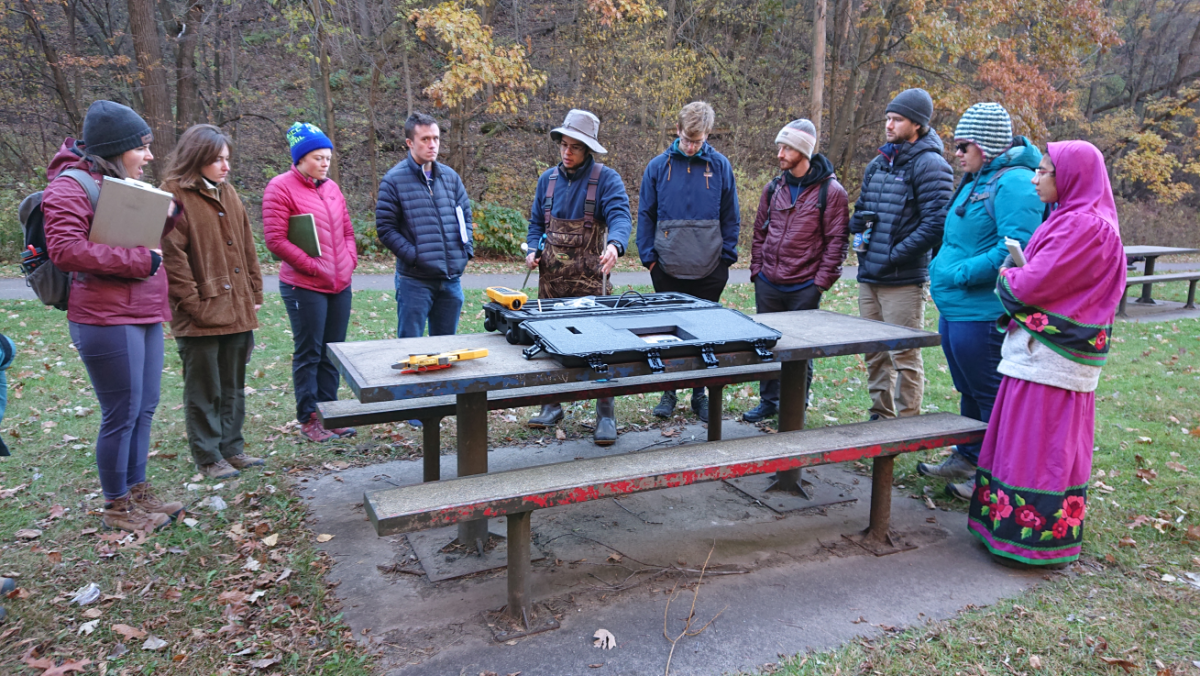More than fun in the sun

Bio
Jabari Jones, Ph.D. Candidate in the Department of Earth & Environmental Sciences and St. Anthony Falls Laboratory, studies how climate and land-use change affect river systems, critically evaluates the efficacy and value of field education in the geosciences, and links social and physical systems through research into environmental justice. A Minneapolis native, Jabari returned to his home city after completing his undergraduate studies in geology at Carleton College, research linking fluvial geomorphology and fish habitat with the US Geological Survey, and M.S. in watershed science from Utah State University. Jabari's vision for interdisciplinary geoscientific research with tangible impacts aligns strongly with his volunteerism and efforts towards community engagement, and these together orient both the broad topical span and focused ethos of his continuing Ph.D. work.
Abstract
Field experiences are a fundamental and well-loved tool for teaching in the natural sciences. However, a number of concerns threaten continued incorporation of field experiences into courses, including increased class sizes, strained finances, legal liability, accessibility concerns, and the effects of COVID-19. Because of these barriers, it is critically important to investigate and articulate the value of field trips to better advocate for their continued implementation. By reviewing existing literature on traditional field trips and courses, virtual field experiences, and accessible field trips, we have identified several attributes that contribute to the value of field trips as a pedagogical tool. The strength of field activities lies in (1) the integration of active learning, (2) the co-creation of knowledge through collaborative, problem-based activities, (3) place-based learning that provides real-world context, and (4) rapid feedback between peers and instructors. These strategies are well-represented in scholarship on teaching and learning, and further, strategies implemented in field learning may help to reduce the achievement gap for underrepresented groups. Applying the four attributes of field trip pedagogy to classroom and virtual classroom activities, as well as to virtual field trips, can improve teaching and learning when field trips are not possible. Instructors should aim to re-create as many of these attributes as possible to design courses that are as impactful as those involving traditional field trips.
Read the full article in the Journal of Geoscience of Education